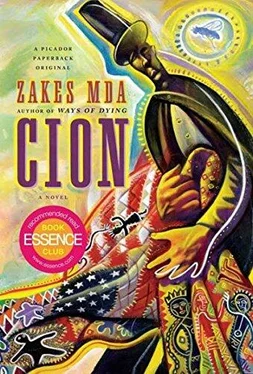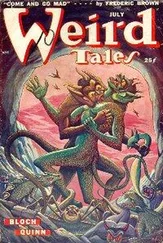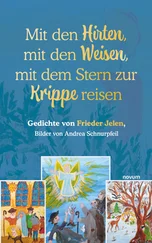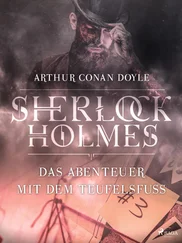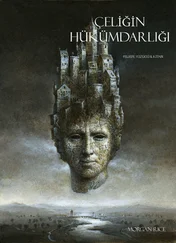And then he preached. “God is the spirit,” he said, “and you cannot worship him except in spirit and in truth.” He preached to the three men and two women as if he was preaching to a multitude of thirty thousand. My only disappointment was that he was not hoofing. I know of hoofing from black television preachers. I find it very entertaining when they dance about and speak and sing at the same time with the organ taking part in that conversation. I remembered the story Obed told me about his own hoofing experience. Ruth prophesied that he would come to no good when she caught him and two of his friends, one of them Nathan, engaged in a hoofing competition—“back in the day,” as he put it. He had invented a contest where boys gathered and competed on who was the best hoofer. “You don’t take God’s name in vain, boy,” Ruth had said, “otherwise you won’t come to no good.” Fortunately she never got to know that it was worse than she thought. The boys were seasoning their preaching with words that were far from Godly — words about women and sex. All this was done to the music of Nathan’s harmonica. The more comedic and vulgar the hoofing, the better the chances for the performer to win the contest.
The preacher’s booming voice brought me back to the little church. He was attacking the Catholic concept of purgatory, but added: “That’s the blessing of being in America, you have the right to be wrong.” Then he told us about a judge in Haiti where he worked for many years as a shepherd of the lost sheep. The man went from being a judge to a busboy at a restaurant in Florida when there was a change of government in Haiti. But he kept his faith. So should we, even in times of the worst of adversities.
Then it was time for testimonies. I was asked to introduce myself and testify. I told them my name and that I was from South Africa and I was glad to worship with them. I left out the professional mourner part. But I knew that they already knew I was Ruth’s African. The pastor told me he was Brother Michael and welcomed me to the church. He expressed his hope that I would attend the service every Sunday.
An old man testified: “I’m glad to be here since this morning. I’ll come back. Thanks for the prayers.”
After more singing we shook hands and the service was over.
I thought Ruth would be happy to hear I had been to church. The family was sitting at the table for lunch when I arrived, and surprise! surprise! Orpah was with them. I blurted out that I was at the church service and was amazed that there were only five of us and the pastor.
“Who was the pastor?” asked Ruth sternly. “Was it the Caucasian man?”
“This is America, Mama, it don’t matter if the pastor is Caucasian,” said Obed.
“Did I say it matter?” asked Ruth.
“It don’t matter ’cause of them Caucasian girls from Guysville,” said Orpah, outing Obed’s shenanigans in a neighboring village. So, brother and sister do talk about things. They do share little confidentialities. And they do betray each other as siblings are wont to do.
“One girl from Guysville,” said Obed. “And it don’t matter if she’s Caucasian or anything.”
“I wouldn’t go to that church again if I was you,” said Ruth. “Especially if that Brother Michael is still the pastor.” I thought she would give me the reasons, but she did not. I turned my attention to the grits and beans and mashed potatoes and pork. I felt my heart pumping in a crazy and misguided rhythm at being so close to Orpah that I could actually smell her cheap perfume. Her presence stole my appetite. I just wanted to watch her as she chewed slowly and deliberately, and as her parents treated her like some visiting royalty, trying very hard to see to it that she was comfortable: Mahlon giving her more meat from his plate, Ruth dishing more potatoes on her plate, and Obed looking at it all unimpressed.
But I wasn’t about to let the church issue go unanswered. “What’s wrong with Brother Michael,” I asked.
“’Cause he’s a sinner,” said Orpah. And then she chuckled sarcastically.
“It ain’t no laughing matter,” said Ruth. “The Good Book in Genesis 2, verse 24 says: Therefore shall a man leave his father and mother and shall cleave unto his wife, and they shall become one flesh . People have ignored God’s principles for marriage.”
Orpah seemed to be eager to explain Ruth’s riddle to me when she noticed my puzzled look. Brother Michael lived happily in Florida and preached the gospel there until he met a woman from Kilvert. Not just a woman, but a divorced woman. They fell in love and Brother Michael left his wife. The couple migrated to Kilvert where Brother Michael took over the church. Ruth led a campaign against him because he was an adulterer. Her biggest tool was the Bible, particularly Exodus 20:14: Thou shalt not commit adultery, and of course the Epistle of Paul the Apostle to the Ephesians 5:33: Husbands, love your wives, wives, respect your husbands . That was how people came to boycott their little chocolate church.
But people could have just as easily forgotten his origins, and would have ultimately forgiven his sin — after all Christ himself was all about forgiveness — if the man had not made things worse for himself by foolishly preaching a sermon that rubbed Ruth and her followers the wrong way. Sister Naomi, the diehard believer in Brother Michael, told the people at the Center that Brother Michael had enlightened her about the heathen messages of the slave quilts.
According to the pastor the story that quilts had a code that directed runaways to safety was a myth created by black women who sold quilts on the roadside to romanticize them and increase their value. This infuriated Ruth, who felt that her heritage was being demeaned by the man.
“You know how Ruth feels about them quilts,” said Orpah. To me what mattered most was that Orpah was at last opening up to me. She was telling me this story and she was looking at me directly. Not at Obed. Not at Mahlon. Ruth was listening quietly, occasionally mumbling an agreement or shock at appropriate places. I did not understand why the pastor would find the code on the quilts hard to swallow. After all in the motherland (which is what the descendants of slaves fondly call Africa) there were many examples of art that spoke. Particularly fabrics and beadwork and even lids of pots. They did not only adorn or cover our nakedness or our food. They transmitted messages in a practical way. They spoke about the status of the wearer or user; about love life, life’s journeys, life’s transitions, emotional states, aspirations, protest, even pet peeves. Why wouldn’t the African carry on with the tradition of talking fabrics in the new world? Even if the codes did not give the fugitives specific directions to safety they functioned very much like the slogans and songs that we chanted and sang during apartheid. They didn’t say anything we didn’t know. They didn’t give us new insights about apartheid and how to overcome it. But they gave us courage and created a spirit of oneness and camaraderie among us. They gave us strength and reinforced our resolve to fight to the bitter end. The quilts did the same for the slaves. As did their spirituals. They contained folk wisdom. They invigorated memory.
But that the matter should cause such a rift between Ruth and her followers on the one hand and the pastor and his congregation of four on the other was beyond me.
“It didn’t help that the man once called us Mulengeons,” said Ruth as if in answer to my unasked questions. “He wrote that he was spreading the gospel among the Mulengeons. We ain’t no Mulengeons. Mulengeons are Roma people. They got Gypsy blood in them. We ain’t no Gypsies.”
“It don’t matter what anyone call us, Mama,” said Obed at last. “We know who we are. It makes no never mind what the pastor says. You don’t have to be pissed off about it, Mama. Let the man live and do his job at the church.”
Читать дальше
